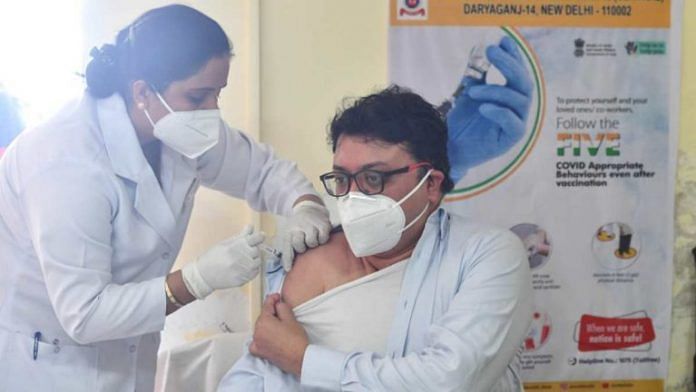I promise this piece is on Covid-19 vaccines in India, but first, and bear with me, a tiny detour.
It was the 1950s. A German pharmaceutical company was aggressively seeking approval for its new star drug, Thalidomide. Europe approved it first, followed closely by Australia. However, things didn’t go according to plan for them in the US. Thanks to a brave woman who stood in their way.
Everyone knew that it was a drug that worked. Everyone knew that it cured morning sickness in pregnancy. But, no one asked what it did to the babies yet to be born. Except for one unassuming person who was just doing her job.
Dr Frances Kelsey was a reviewer at the US Food and Drug Administration in the 1950s and it so happened that the petition for the drug’s approval came to her desk. She asked for its safety data. The German company said in response that its safety was self-evident by its approval in Europe and in Australia. She still asked for its safety data. The company said that it was not her place to ask as her superiors were inclined to approve it in any case. She again asked for its safety data.
The application for approval stayed at her desk, because she persisted.
A few years later it was noticed that 10,000 babies were born without hands and feet because their mothers had been prescribed Thalidomide. The US escaped the scourge because of one person who decided to do her job. A lot more about her life and her moral fortitude has been beautifully described in this book called Frankie by James Essinger and Sandra Koutzenko, for all those interested to read more.
Indian health experts capitulated in face of vaccine nationalism
Fast forward to today. The Indian government has approved a vaccine against Covid-19, called Covaxin, being developed by an indigenous pharmaceutical company called Bharat Biotech in conjugation with ICMR, the apex council for medical research in India.
Bharat Biotech, without a doubt, is a credible firm with a fine record in vaccine innovation. And yet, it capitulated. Without having run even their phase 3 trials, a stage integral to the process of approval of any new medical intervention, they allowed their hard-earned scientific credibility to be co-opted into a dangerous and partisan game of vaccine nationalism.
Furthermore, the Drug Controller General of India (DCGI), whose sole responsibility is to protect the interests of the people of this county, thought it was a good idea to approve the vaccine without any efficacy data, and safety data from a large scale phase 3 trial.
The DCGI and the ICMR are filled with medical professionals and experts we are asked to trust repeatedly. And yet when the time came, they capitulated. When asked to bend, they all showed us how well they can crawl, to quote veteran BJP leader Lal Krishna Advani from during the Emergency in India. Not a single dissenting note.
If only we had a Dr Kelsey amongst that crowd. If only they had persisted. If only they had asked for the efficacy data.
Sadly, they didn’t.
And the wages of their spinelessness will now have to be paid by us all.
Dharamveer is a student of Oxford University, UK




Excellent Article
Actually a pretty valid point, science should be separated from emotions
A valid point about Covaxin. In fact, many people including me utterly disappointed with the way Covaxin is approved without phase3 trials. At least, scientists in the Bharat Biotech should have mentioned to the DCGI that they could wait a few more weeks to for phase 3 results. Bharat Biotech put its credibility at stake for this unnecessary rush.